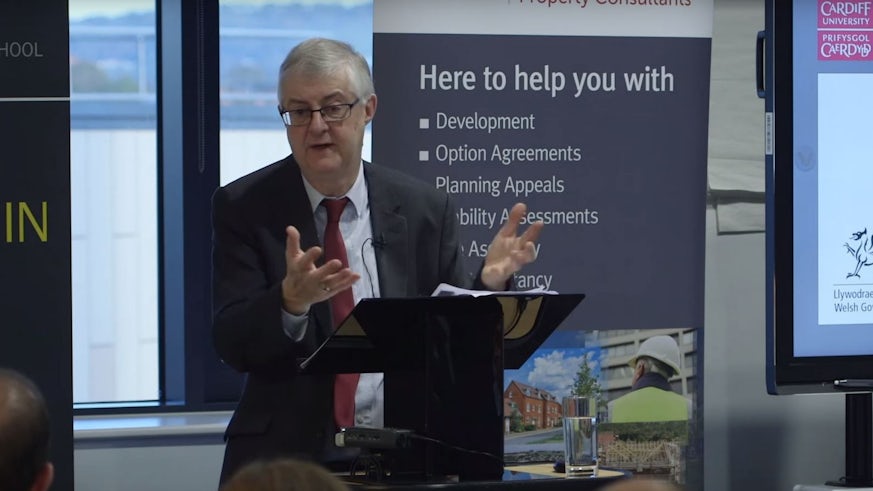Vacant Land Tax
18 October 2018

An audience of policymakers, business practitioners, and other stakeholders have heard how transparency is key in developing Wales’ tax policy at the latest in Cardiff Business School’s Breakfast Briefing Series.
Finance Secretary Mark Drakeford updated business leaders about plans for Wales to seek new powers to introduce a vacant land tax at a packed Executive Education Suite on 18 October 2018.
Mr Drakeford outlined the process of testing the Wales Act 2014, which enables the Welsh Government to propose new tax ideas in areas of devolved responsibilities.
A public debate
A vacant land tax was chosen from a shortlist of four tax ideas to test the Wales Act, following a public debate about new tax ideas last year.
The measures might be used to discourage land banking and encourage the more timely development of vacant sites to meet increasing housing demands in Wales.
Mr Drakeford, said: “We are currently working on the process of transferring powers from the UK government to Wales.
“We hope to begin negotiations with HM Treasury in the coming months, with a view to securing the powers in the New Year. After this time, we can begin more formal policy development.”
Development and regeneration
A vacant land tax is not a new idea. Property taxes have been used to encourage development and regeneration across the world.
The Republic of Ireland’s vacant sites levy provides a useful reference point for how a vacant land tax might work in Wales.
Mr Drakeford added: “I am committed to ensuring our tax policy is developed in an open and transparent matter and that’s why we’ve had – and are continuing to have – constructive discussions with stakeholders...”

“Only through this cooperation can we ensure we achieve our objectives without placing any unnecessary burden on responsible developers and landowners.”
The Executive Education Breakfast Briefing series is a network that enables business contacts to find out more about the latest research and key developments from industrial partners.
If you were unable to attend, catch up on our live stream of the event.
Our next briefing, The Great British Productivity Puzzle, takes place on 13 November 2018 and will be led by Professor Andrew Henley.
Share this story
Enabling our business contacts to find out more about latest business research and key developments from industry partners and practitioners.





